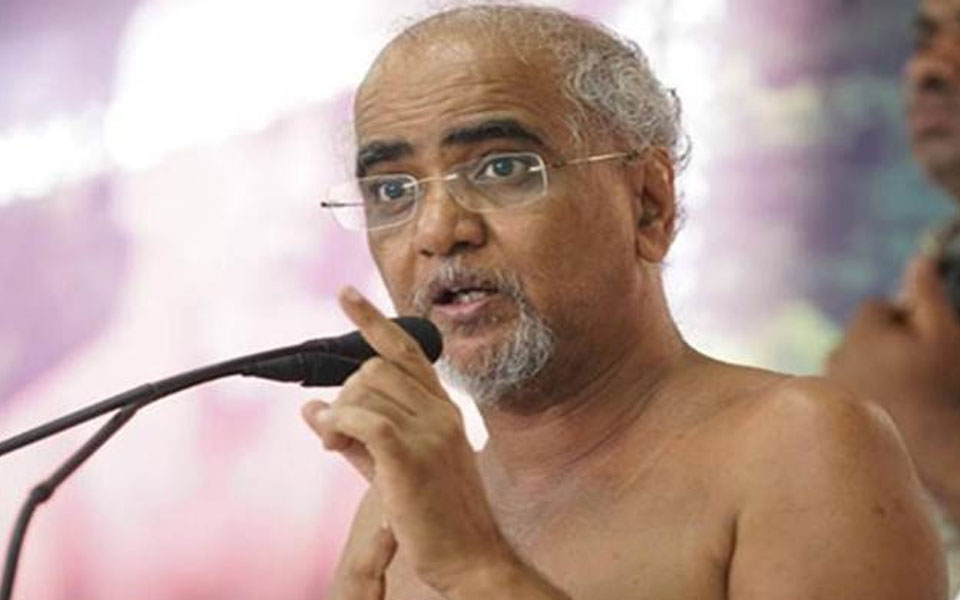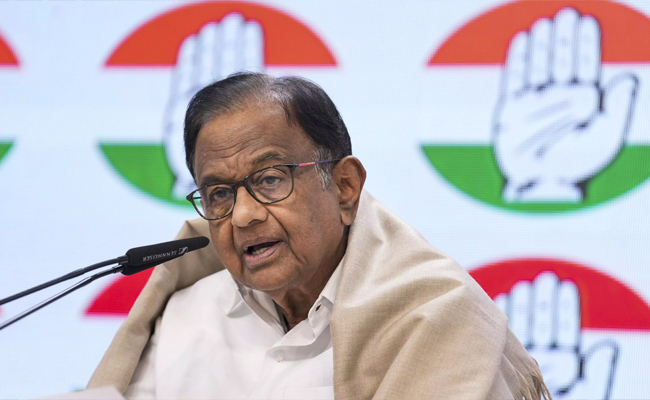New Delhi, Sep 1: Jain monk Tarun Sagar passed away at a temple here early on Saturday after a prolonged illness, an official said. He was 51.
Sagar, who was suffering from jaundice and other ailments, breathed his last at around 3 a.m. at the Radhapuri temple here, a temple official told IANS.
President Ram Nath Kovind and Prime Minister Narendra Modi expressed grief over his demise.
"Sad to hear of the passing of Jain Muni Shri Tarun Sagar Ji Maharaj. Known for his 'Kadve Parvachan'. He spread the message of peace and non-violence in the society.
"Our country has lost a well-respected spiritual leader. My condolences to his countless followers," Kovind tweeted. "Deeply pained by the untimely demise... We will always remember him for his rich ideals, compassion and contribution to society.
"His noble teachings will continue inspiring people. My thoughts are with the Jain community and his countless disciples," Modi tweeted.
Sagar was earlier admitted to a private medical centre in Delhi. Union Home Minister Rajnath Singh also offered his condolences, saying Sagar was the sources of inspiration.
Delhi Chief Minister Arvind Kejriwal said he was "pained to hear of the sad demise". "His teachings and ideals will always inspire humanity."
Born in Madhya Pradesh's Damoh district on June 26, 1967, Sagar has a huge following in the Jain community.
Let the Truth be known. If you read VB and like VB, please be a VB Supporter and Help us deliver the Truth to one and all.
Melbourne (PTI): Three Indian students were among 40 people injured in the terrorist attack on Sydney's Bondi Beach in Australia, according to a media report on Tuesday.
Two out of these three students are believed to be receiving treatment in the hospital, The Australia Today news portal reported.
The names of the Indian students injured during Sunday's attack have not been disclosed yet.
ALSO READ: Affront to non-Hindi speaking people: Chidambaram slams use of Hindi words in bills' names
The Indian students sustained injuries during the shooting, and their exact condition has not been formally confirmed yet, it said.
Naveed Akram, 24, and his father, 50, opened fire on a gathering during the Jewish festival Hanukkah by the Sea celebration.
At least 15 people were killed in the attack, including a 10-year-old child. Five of the injured remain in critical condition, while two injured police officers are in serious but stable condition, it added.
New South Wales Police Commissioner Mal Lanyon said the investigation is expanding as new information emerges, including international travel by the alleged attackers and the discovery of extremist material, the report said.





